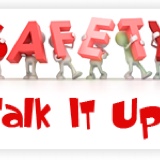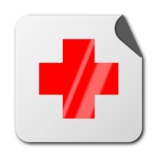Starting Information
-
Report Number
What is a SMAT Audit?
-
Reinforcement of safe behaviors such as the use of PPE, housekeeping and the use of safe methods and procedures is the most effective form of SMAT. If you see an unsafe act, express concern for the injury potential and try to establish why this behavior is taking place (e.g. awareness, lapse, training, supervision, habit, etc.) and ask yourself "can it be resolved now?". Indicate on the form the classification of contact:
C = Contractor
E = Employee
S = Supervisor
T= Temporary Worker
Identify by name the contact for an unsafe act may have negative effect on the outcome of your discussion.
Note: take time to observe, stop work safely, introduce yourself and the purpose of SMAT. Start with positive items.
Categories Defined & What to Look For
-
Category A: Position of People
Potential for striking against, struck by falling objects, vehicles, trapped between, falling, contact with temperature extremes, contact with electricity, inhaling dust/fumes/vapors, posture, lifting, twisting, repetitive motions, manual handling injuries, line of fire.
Category B: Personal Protective Equipment
Eyes and face, ears, head, hands and arms, feet and legs, respiratory system, trunk, appropriate clothing. Not being worn or stored correctly. In good condition, maintained correctly.
Category C : Procedures, Housekeeping and Environment
Procedures inadequate job, procedures not known or understood, procedures not followed, driving standards and pedestrian actions, safe access to equipment, footpaths, handrails. Isolation and permit systems used correctly. Local safety signage, information and instructions. Housekeeping (no trips, slips or leaners) and storage problems. Contractors and temps inducted and monitored. Environment condicionado (temperature, chamiças Hazards, ..)
Category D : Tools and Equipment
Right for job, used correctly, in safe condition, machinery safety standards applied, vehicles, ladders, racking, lifting equipment, fire equipment, electrical equipment, pressure systems, storage facilities at required standard? All other workplace environmental standards including employee facilities at a good standard.
Category E : Reactions of People
When you arrive - for example adjusting protective equipment, changing position, rearranging the job, stopping the job, implementing safety systems (isolation, etc.)
Let's get started!
-
Site
-
Conducted on
-
Smat Leader
-
Department
-
Workshop
Observed Register
-
Name of Observed Person 1
-
Job:
-
Name of Observed Person 2
-
Job:
-
Name of Observed Person 3
-
Job:
SMAT Audit Positive Observations
Relevant Information
-
Risk Assessment avaiable<br>
-
Smat knowledge
Positive Point
-
Positive Point
-
What & Where (was the behavior reinforced?)
-
Who
- Employee
- Contractor
- Supervisor
- Temporary Worker
-
Category
- Position to People
- Personal Protective Equipment
- Procedures Housekeeping and Environment
- Tools and Equipment
- Reactions to People
-
Add media
SMAT Audit Possible Unsafe Acts
Possible Unsafe Act
-
Unsafe Act
-
What & Where (was the behavior reinforced?)
-
Who
- Employee
- Contractor
- Supervisor
- Temporary Worker
-
Category
- Position to People
- Personal Protective Equipment
- Procedures Housekeeping and Environment
- Tools and Equipment
- Reactions to People
-
Add media
-
Action completed or deferred? (Who & When)
SMAT Audit Unsafe/Unsatisfactory Conditions
Unsafe/Unsatisfactory Condition
-
Unsafe Condition
-
What & Where (Outcome of discussion and actions taken)
-
Who
- Employee
- Contractor
- Supervisor
- Temporary Worker
-
Category
- Position to People
- Personal Protective Equipment
- Procedures Housekeeping and Environment
- Tools and Equipment
- Reactions to People
-
Add media
-
Action completed or deferred? ( Who & When)
Summary
-
Positive Points
-
Unsafe Acts<br><br><br>
-
Unsafe Conditions<br><br><br>
-
Signature







